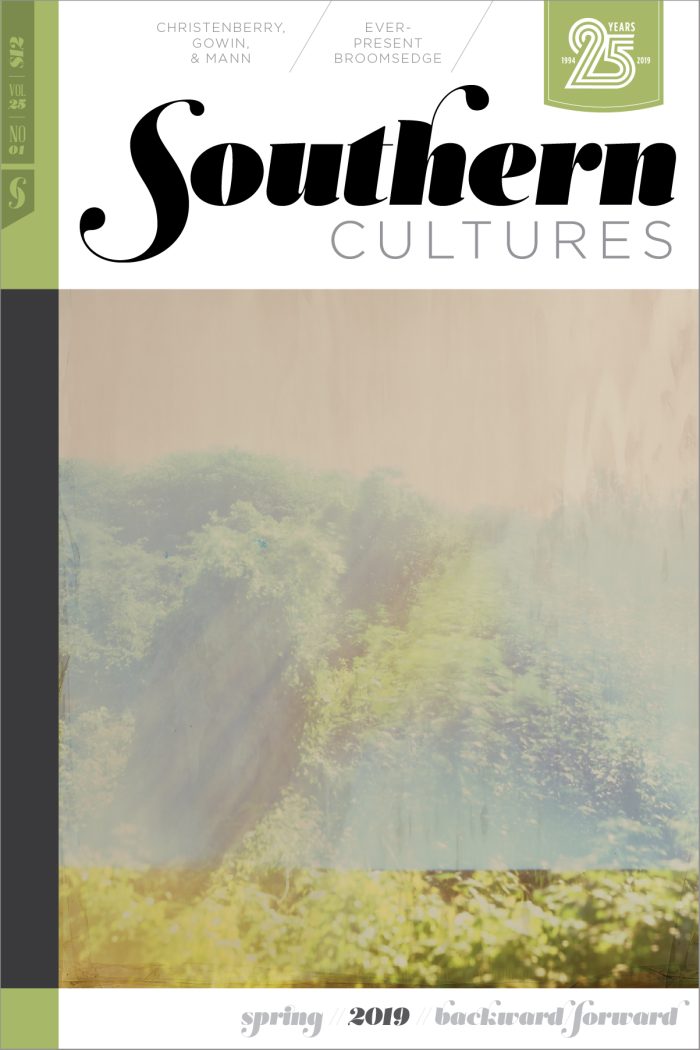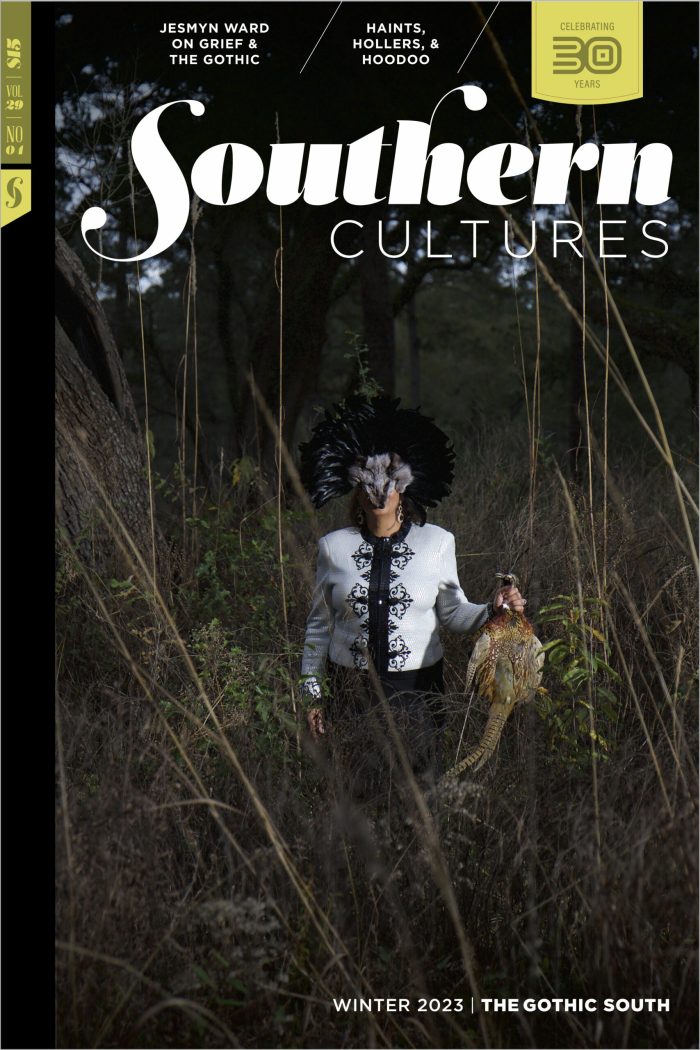Essay
by Harry Watson
“Everyone who is paying attention knows that the South is with us still.” With this issue, Southern Cultures turns twenty-five years old. It’s a source of wonder to recall a distant meeting with friends and supporters in John Shelton Reed’s old office at the Institute for Research in Social Science (now the Odum Institute) at »
Essay
Considering the Past and Future South
by Charles Reagan Wilson
“Past tropes never survive unless they adjust to changing times.” “Backward” and “forward” seem straightforward terms, but they have rich associations with the American South. Most obviously, they mean “past” and “future,” and that understanding shaped the outlook of this special issue of Southern Cultures. Allen Tate famously attributed the flowering of literature after 1920 »
Photo Essay
Photography as History in the U.S. South
by Grace Elizabeth Hale
It may seem impossible, given climate change and ISIS, mass shootings and growing inequality and disregard for Black life, sexual assault and Russian hacking and the opioid epidemic, to worry about any other single thing, but history too is in trouble. I do not mean history as content. Beloved television shows and films take place »
Photo Essay
by Kevin Kline
This series of over-sized tintypes is a rumination upon a relationship with a person and a city. Using metaphor, allegory, and the re-interpretation of a few facts, these images re-stage events and themes, and recreate certain atmospheres from a period of sixteen years. They are an idealized record of my relationship with my partner Brian »
Essay
by William Thomas Okie
Spacious skies. Alabaster cities. Shining seas. Purple mountain majesties. Fruited plains. Amber waves of grain. America is beautiful. That’s what I learned from singing Katharine Lee Bates’s unofficial national anthem as a child. Yet growing up in middle Georgia, I didn’t see much of that. I looked out on my native terrain, flat and worked-over, »
Art
Art and Environment in the New Deal and New Millennial South
by Teresa Parker Farris
In late spring 2016, Louisiana artist Monique Verdin arrived in the Netherlands for the annual shareholders’ meeting of Royal Dutch Shell armed with an impassioned message and a collection of her black-and-white photographs. The images, displayed as individual large-scale banners, revealed petrochemical plants looming over the wasted landscape, seasonal floods inundating impoverished neighborhoods, and denuded »
Film
Black Women, Midcentury Domesticity, and the Films of the Georgia Department of Public Health
by Lauren Pilcher
“If we refuse to overlook the . . . exploitation of black women to modernize midcentury public health, we may grasp something of what it means to imagine and create Souths that embrace difference.” In the early 1950s, the Georgia Department of Public Health (GDPH) sponsored two films documenting black women living and working in »
Essay
by Gene Nichol
It can be an odd undertaking to explore the meaning and mission of an American public university through the lens of history. The concept of a “university of the people”—especially for a southern state university—must begin with a great and unyielding asterisk. The University of North Carolina at Chapel Hill was all male until 1897, »
Photo Essay
The Momentary Present
by David Wharton
Most photographs are born in a fraction of a second. They show a small piece of the visible world as seen from a particular vantage point at a particular moment in time. They reflect an instantaneous present sandwiched between a fixed past and an unknown future. Photographs draw from a world that already exists; they »
Essay
by Regina Bradley
My great-grandfather was murdered by a white man in 1926, the night before New Year’s Eve. He was thirty-five years old—my grandmother Sara’s father. I call her Nana Boo. She doesn’t have any memories of him because he was killed when she was a baby. His wife, Nana Boo’s mama, Mary Jones Barkley, was the »
Poetry
by Rajiv Mohabir
Drawn At dusk small brown batsfall from the eves of the porchhaving made a home for brownfur. A cloud of mosquitoesrises from the lake. With erraticwing strokes, bats sense their prey,I can only see or understandby what it is not, a small voice as guide.All these years I have resisteda home in the South. I »





